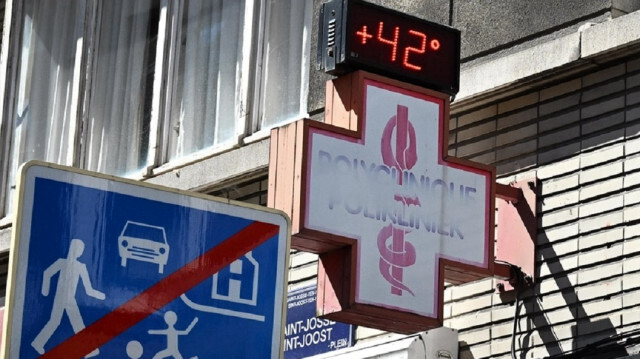

File photo
38,000 fewer people would have died if greenhouse gases had not accelerated global warming, says Barcelona Institute for Global Health (ISGlobal)
More than half of the estimated 68,000 heat-related deaths during Europe's scorching summer of 2022 were caused by human-induced climate change, according to new research on Tuesday.
A study by the Barcelona Institute for Global Health (ISGlobal) found that 38,000 fewer people would have died if greenhouse gases had not accelerated global warming, underscoring the urgent health risks posed by the climate crisis.
Lead author Thessa Beck said the findings challenge the perception that climate change is a distant threat. "Many see climate change as a future concern," Beck noted in the report. "Yet our findings underscore that it is already a pressing issue, one that directly impacts our health and survival."
The study revealed stark differences across demographics, with women, older adults, and residents in southern Europe suffering more from heat-related deaths than their counterparts.
While scientists had long known that carbon pollution exacerbates heatwaves, this study quantified its direct impact on mortality, estimating that 56% of all heat-related deaths could have been prevented if the climate had not been artificially warmed by burning fossil fuels and deforestation.
This percentage, researchers found, had remained around 44% to 54% over the previous six years.
Researchers project that if global temperatures surpass a 2°C increase over preindustrial levels, lives lost to severe summers will soon outnumber those saved by milder winters.
According to a United Nations report released last week, the world is currently on track to exceed this threshold, with temperatures likely to rise by 3°C by the century's end.
#Barcelona Institute for Global Health
#Thessa Beck
#climate crisis
